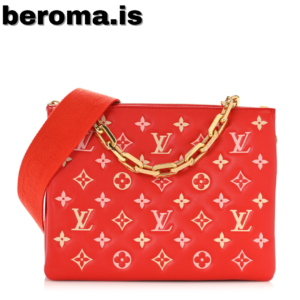 In the intricate landscape of luxury fashion, Louis Vuitton stands out as a paragon of exclusivity. While the iconic LV monogram is synonymous with elegance and luxury, it has also become a symbol in another marketplace—one that operates in the shades of authenticity. In this world, “super fake” Louis Vuitton bags have carved a niche, straddling the fine line between the allure of luxury and the controversy of counterfeit. For fashion enthusiasts and luxury shoppers in the UK, this paradox raises ethical, legal, and quality considerations that are as complex as they are compelling.
In the intricate landscape of luxury fashion, Louis Vuitton stands out as a paragon of exclusivity. While the iconic LV monogram is synonymous with elegance and luxury, it has also become a symbol in another marketplace—one that operates in the shades of authenticity. In this world, “super fake” Louis Vuitton bags have carved a niche, straddling the fine line between the allure of luxury and the controversy of counterfeit. For fashion enthusiasts and luxury shoppers in the UK, this paradox raises ethical, legal, and quality considerations that are as complex as they are compelling.
Defining “Super Fake” in the UK Louis Vuitton Context
The term “super fake” refers to a counterfeit luxury item that is remarkably close to the genuine article. It surpasses the run-of-the-mill counterfeit goods in terms of quality and accuracy. Unlike replicas, which are usually authorized and openly branded, super fakes aim to mimic the original item down to the smallest detail, including packaging, materials, and any branding. This level of imitation seeks to deceive even the discerning eye, often sold with the clandestine wink and nod of being the “real thing.”
A Market of Desire: Super Fake Bags in the UK
The market demand for super fake Louis Vuitton bags remains significant, particularly in the UK, where luxury items have a devoted audience. These bags are often procured through less-than-official channels, stealthily making their way into the hands of eager buyers. The price points vary, from a fraction of the price of an authentic Louis Vuitton bag to nearly indistinguishable equivalents. Buyers of super fake luxury items in the UK are a diverse group; they range from those who wish to signal wealth without the cost to genuine devotees who cannot justify or afford the exorbitant prices of the originals.
Ethical and Legal Quandaries of Super Fake Bags
The purchase of a super fake luxury bag raises several ethical and legal red flags. On one hand, there is the question of artistry and admiration of the skill required to create a product that emulates the original so accurately. However, this admiration is quickly overshadowed by the industry’s efforts to protect brand integrity and the legal repercussions that can befall both sellers and buyers of counterfeit items. For the individuals behind the super fake industry, there is a clear moral breach, but for the consumers, the allure of luxury can sometimes blind them to these concerns.
Quality and Craftsmanship: A Closer Look
One aspect that intrigues buyers of super fake Louis Vuitton bags is how the quality and craftsmanship stack up against authentic pieces. Counterfeiters have become increasingly sophisticated, employing advanced techniques to recreate the feel and aesthetic of genuine LV bags. However, detailed comparison often reveals subtle differences, particularly in terms of the longevity of materials and subtle aspects of construction that denote authenticity. The pursuit of luxury is not only about the final product but also the story of how it was made—something super fake items are fundamentally and necessarily devoid of.
Impact on the Luxury Industry
The presence of super fake bags has a multifaceted impact on the luxury industry. Authentic luxury brands like Louis Vuitton invest heavily in their brand image and unique identity. Super fake items dilute these efforts, and on a grander scale, can potentially depreciate the perceived value of the luxury market. Furthermore, the presence of replica goods can also inadvertently channel funds to criminal organizations involved in counterfeiting, representing a loss of revenue for the truly creative and ethical luxury design enterprises.
Discerning the Authentic from the Super Fake
For the savvy consumer, distinguishing between an authentic Louis Vuitton bag and a super fake requires a keen eye and a bit of knowledge. Examination of every detail—from stitching to the look and feel of the monogram—is crucial. In addition, looking at the sourcing and the selling environment can often be telling; an affordable, “brand new” Louis Vuitton handbag sold on the internet may be a too-good-to-be-true giveaway. Education, conscientious consumption, and responsible buying practices can protect consumers from unwittingly becoming part of the super fake market.
Conclusion and the Future of Super Fakes in the UK
The debate over super fake luxury items is likely to persist in the UK’s fashion arenas for the foreseeable future. It challenges us to consider the nature of luxury, the sanctity of intellectual property, and the value we place on craftsmanship and authenticity. Perhaps the solution lies in a redefinition of what luxury truly means—a celebration of individuality and artistry, rather than mere symbols of status. For those enamored with the classics, the pursuit of authentic pre-owned items offers a more ethical and affordable entry into the world of luxury. In the end, the choice remains a deeply personal one, with the dual risks of legal entanglement and moral dilemma lurking in every super fake storefront.